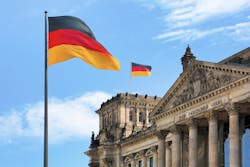Productivity Perspectives: It’s a big, wide wonderful we live in
A late September visit to Bavaria that culminated in the feature story on global beer markets in our November 2015 issue, included editors from South Africa, China, Brazil, Mexico and the U.S.
Individuals from each contingent, including that of the U.S., had questions about Donald Trump.
International newspaper headlines during the visit were all about the European refugee crisis and the Volkswagen emissions-testing scandal. The two are not unrelated. An overwhelming number of the refugees fleeing war in Syria want to live in Germany largely because of the engineering- and production-related jobs there.
Volkswagen epitomizes the nexus of financial, business and political elements that have made the Germany export economy so successful, and, as revealed in light of recent scandal, so insular.
Arrangements agreed on
The union-management agreements that were forged in West Germany in the post-World War II era are a big part of why nowadays, as when our group visited Oktoberfest, older men are seen using antique machinery displays to explain engineering principles to their grandchildren.
Things work well there without much commotion. It’s expected that you’ll know what to do, for example, when you get to the airport, without being herded. And most shocking of all is how quiet the airports are.
In the security line prior to boarding the flight back home, an American woman behind us was just bursting to give a shout-out to her compatriot up ahead in line, like she normally would have done, but just couldn’t bring herself to break the almost-silence.
But if any editor on the trip had hoped to see evidence of the refugee crisis, he or she was disappointed to the extent that the only signs of disruption apparent were booths set up at railroad stations.
Nth globalization era
For the most part, people seemed to be taking the prospect of a continuing stream of refugees in stride.
For one thing, the absorption of the former East Germany into the Western Federal Republic took place not that long ago. And though it cost real money and problems persist, they got through it.
Moreover, as our towncar-driver explained one evening, the Bavarians are not so much a German people as they are descended from Celtic tribesmen and Roman settlers left in place after the fall of the empire during the Teutonic invasions. In other words, they’re actually used to quite a bit of coming and going.
